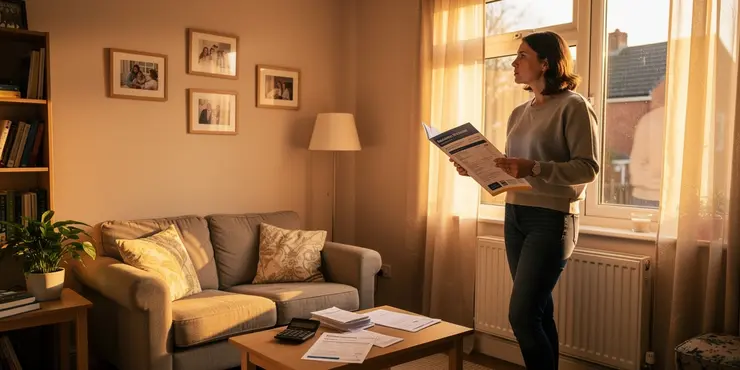
Find Help
More Items From Ergsy search
-
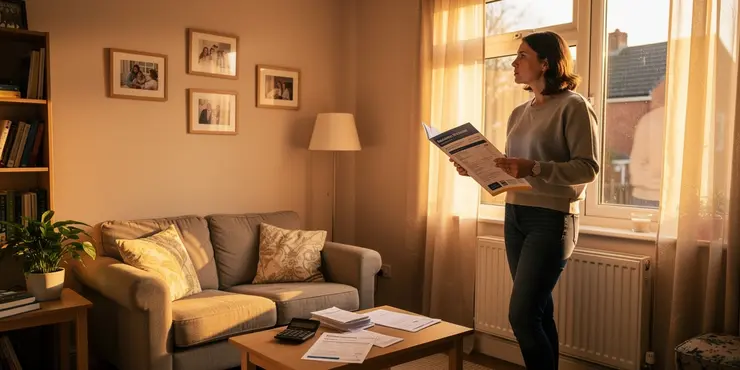
Are first-time buyers affected differently by interest rate changes?
Relevance: 100%
-

House Prices Soar: First-Time Buyers Share Their Stories
Relevance: 64%
-

Is there a Stamp Duty exemption for first-time buyers in the UK?
Relevance: 64%
-

Rising Property Prices Fuel Concerns Over First-Time Buyer Accessibility
Relevance: 59%
-
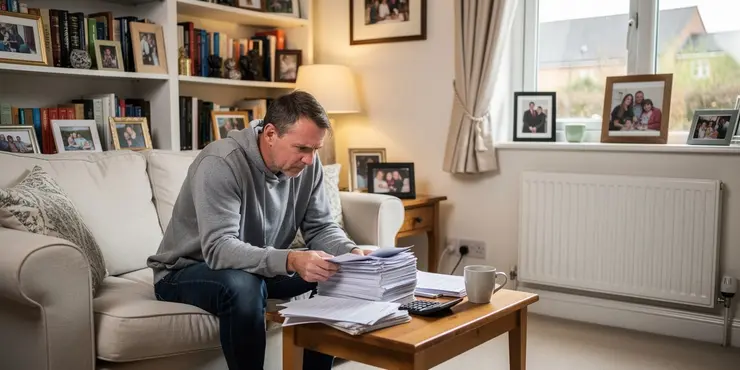
How do interest rate changes affect my mortgage payments?
Relevance: 49%
-

What is a tracker mortgage and how does it respond to interest rate changes?
Relevance: 47%
-
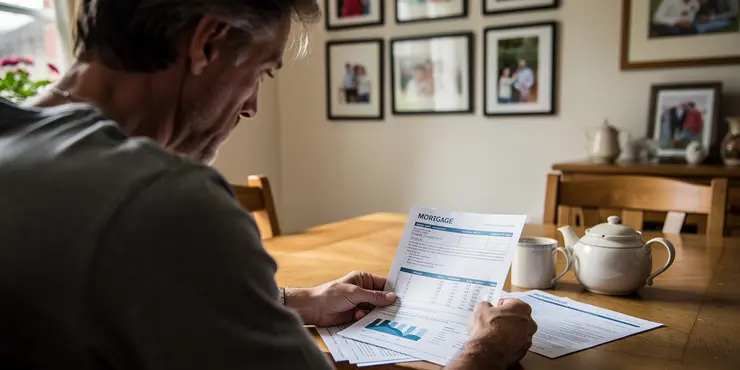
Will my fixed-rate mortgage payments change with interest rate fluctuations?
Relevance: 45%
-

First Time Buyer Buy to Let Finance Options. Lending Criteria on Mortgage and Bridging Finance
Relevance: 45%
-

Major Banks Announce Changes in Interest Rates: Are You Affected?
Relevance: 43%
-

How do economic conditions influence interest rate changes?
Relevance: 42%
-

First Time Buyer Buy to Let Finance Options. Lending Criteria on Mortgage and Bridging Finance
Relevance: 42%
-

Can my lender change my interest rate without notification?
Relevance: 41%
-
What is an SVR and how does it relate to interest rate changes?
Relevance: 41%
-

Are there different rates of Stamp Duty in the UK?
Relevance: 40%
-

Why do interest rates rise and fall?
Relevance: 37%
-

Can interest rates on student loans be reduced?
Relevance: 37%
-

What happens to my monthly payments if interest rates rise?
Relevance: 36%
-

How can I protect myself from rising interest rates?
Relevance: 34%
-

How does interest rate affect my car finance agreement?
Relevance: 33%
-
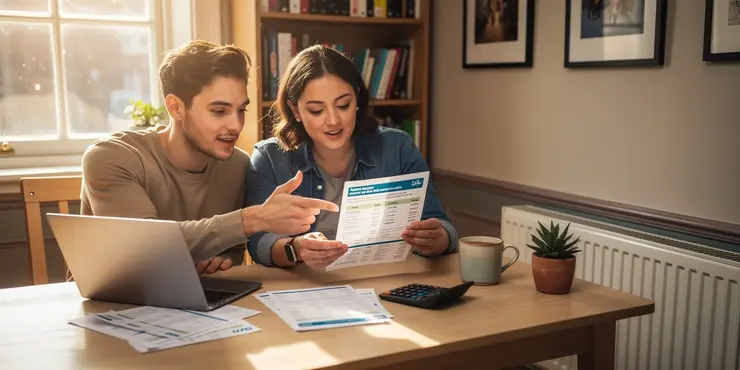
How do better interest rates help me save money?
Relevance: 33%
-
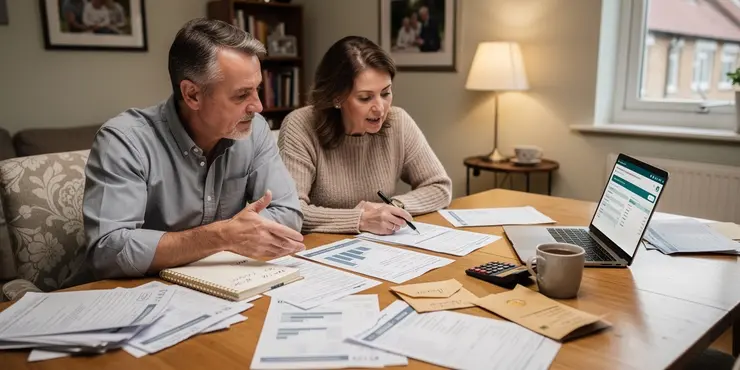
How do better interest rates help me save money?
Relevance: 33%
-
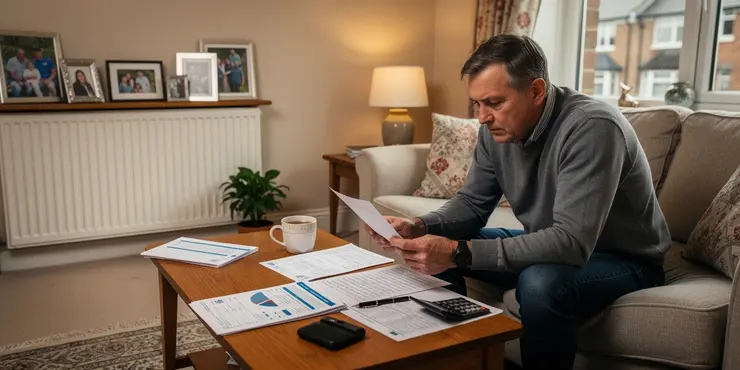
Is it possible to switch my mortgage type if interest rates become unfavourable?
Relevance: 31%
-

What is the current threshold for Stamp Duty in the UK?
Relevance: 31%
-
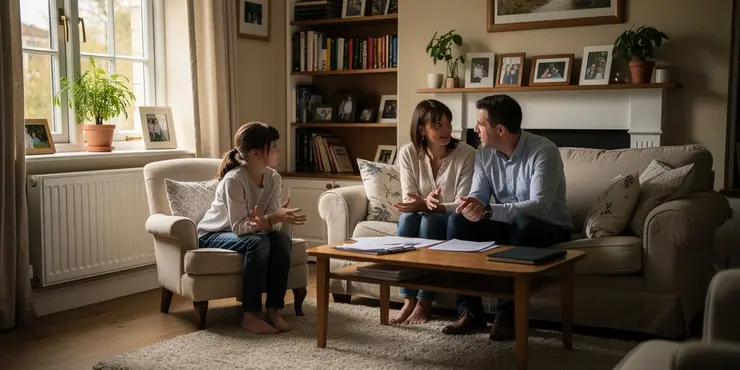
What is Stamp Duty Land Tax (SDLT)?
Relevance: 30%
-

How is Stamp Duty calculated in the UK?
Relevance: 30%
-
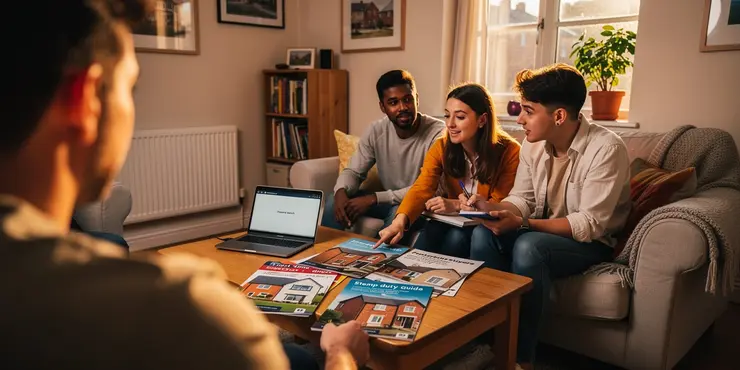
Who pays Stamp Duty in the UK?
Relevance: 29%
-

UK House Prices Fall for Third Consecutive Month
Relevance: 29%
-

Can Stamp Duty be included in a mortgage in the UK?
Relevance: 29%
-

How often do interest rates change?
Relevance: 29%
-

When is Stamp Duty payable in the UK?
Relevance: 28%
-

Is there a change in National Insurance rates for 2026?
Relevance: 28%
-

First Time Buyer UK - Own Outright vs Help to Buy vs Shared Ownership
Relevance: 28%
-

What should I do if I can't afford my mortgage payments due to rising interest rates?
Relevance: 28%
-

How do I pay Stamp Duty in the UK?
Relevance: 28%
-

Is there any interest charged on a Time to Pay arrangement?
Relevance: 27%
-

Will there be a change in the additional rate threshold in April 2026?
Relevance: 27%
-
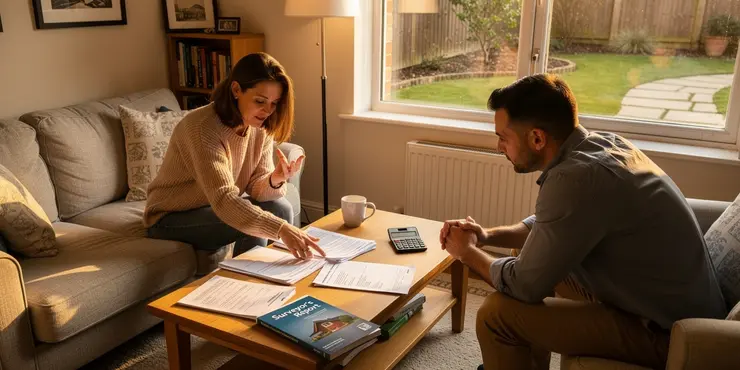
Can the cost of the surveyor's report be negotiated between the buyer and seller?
Relevance: 27%
-

What is Stamp Duty in the UK?
Relevance: 27%
-

How often do wage rates change in the UK?
Relevance: 26%
-

How does Stamp Duty affect shared ownership properties?
Relevance: 26%
Introduction
Interest rates are a crucial aspect of the housing market, impacting both buyers and sellers. For first-time buyers in the UK, understanding how interest rate changes affect them differently compared to other buyers can be particularly important. This article explores the unique impact that shifting interest rates have on those attempting to purchase their first home.
Understanding Interest Rates
Interest rates, controlled in the UK by the Bank of England, influence the cost of borrowing money. When interest rates rise, the cost of mortgage repayments typically increases, which can affect affordability for prospective homebuyers. Conversely, when rates fall, borrowing becomes cheaper, potentially making it easier for some people to enter the housing market.
Impact on First-Time Buyers
First-time buyers often face distinct challenges when interest rates change. Unlike existing homeowners who may have accumulated equity in their properties, first-time buyers generally rely more heavily on borrowing. As a result, they can be more sensitive to changes in interest rates, affecting their ability to secure affordable mortgage terms.
When interest rates rise, the monthly mortgage payments for new loans increase. This can stretch the budgets of first-time buyers, leading to difficulties in securing the necessary financing. Additionally, higher interest rates can reduce the maximum loan amount that lenders are willing to approve, forcing prospective buyers to lower their property expectations or delay purchasing altogether.
In contrast, when interest rates decrease, first-time buyers might find it easier to afford a mortgage. Lower monthly repayments can enhance their purchasing power, potentially allowing them to consider a wider range of properties. However, it is worth noting that lower interest rates can also lead to increased competition among buyers, as more people are drawn into the market.
Challenges and Opportunities
For first-time buyers, navigating interest rate changes involves both challenges and opportunities. On one hand, rising rates can limit options and increase financial pressure. On the other hand, falling rates might open up new possibilities but could also lead to heightened competition and rising property prices.
Moreover, first-time buyers should be aware of the types of mortgage products available. Fixed-rate mortgages provide stability amidst changing rates, setting payments at a constant level for a fixed period, while variable-rate mortgages might initially offer lower payments but can fluctuate with market conditions.
Conclusion
Interest rate changes invariably impact all homebuyers, but the effects can be particularly pronounced for first-time buyers in the UK. By understanding the dynamics of interest rates and considering both the challenges and potential strategies, such as choosing appropriate mortgage products, first-time buyers can make informed decisions that best suit their financial situation and housing goals.
Introduction
Interest rates are important for buying and selling houses. If you're buying your first home in the UK, you need to know how interest rates affect you. This article talks about what happens when interest rates change, especially for first-time buyers.
Understanding Interest Rates
The Bank of England controls interest rates in the UK. Interest rates affect how much it costs to borrow money. When interest rates go up, it costs more to pay back a mortgage, making it harder for people to buy a house. When rates go down, borrowing is cheaper, which can make it easier to buy a house.
Impact on First-Time Buyers
Buying your first home can be tricky when interest rates change. People who already own a home might have some money saved up in their homes, but first-time buyers usually have to borrow more. So, they feel the changes in interest rates more.
If interest rates go up, the monthly payments on a new loan get higher. This can make it hard for first-time buyers to afford a mortgage. It might also mean banks will lend them less money, so they may have to look at cheaper houses or wait to buy.
When interest rates go down, it can be easier for first-time buyers to afford a mortgage. Lower payments can help them buy a better house. But, more people might want to buy houses because of lower rates, which can make the competition tougher.
Challenges and Opportunities
For first-time buyers, interest rates changing can be both tricky and helpful. If rates go up, buying a house can become more expensive. If rates go down, buying a house might be easier but more competitive.
It's important to know about different mortgage types. Fixed-rate mortgages mean your payments stay the same, even if interest rates change. Variable-rate mortgages might start with lower payments, but they can go up or down with market changes.
Conclusion
Changes in interest rates affect everyone buying a house, but especially first-time buyers in the UK. By learning how interest rates work and choosing the right mortgage, first-time buyers can make smart choices to fit their money plans and housing goals.
Frequently Asked Questions
Do interest rate changes affect first-time buyers differently than other buyers?
Yes, interest rate changes can have a more pronounced impact on first-time buyers because they may have lower budgets and less flexibility in their financing options compared to experienced buyers.
How do interest rates affect the affordability for first-time buyers?
Higher interest rates can increase monthly mortgage payments, making homes less affordable for first-time buyers who may already be struggling to enter the market.
Can first-time buyers get special interest rates?
Some lenders offer special rates or programs for first-time buyers, but typically, all buyers are subject to market interest rates.
Why is it important for first-time buyers to pay attention to interest rate changes?
Interest rate changes affect the overall cost of borrowing, which can impact the affordability and financial viability of purchasing a home for first-time buyers.
Could rising interest rates disqualify first-time buyers from loans?
Yes, higher interest rates can increase monthly payments, leading to situations where first-time buyers no longer meet the debt-to-income ratio required by lenders.
Do interest rate changes influence the choice between fixed and variable rate mortgages for first-time buyers?
Yes, interest rate volatility may lead first-time buyers to prefer fixed rates for stability, while others may gamble on variable rates if they anticipate falling rates.
How do interest rate hikes affect housing market conditions for first-time buyers?
Rate hikes can cool the housing market by reducing overall demand, potentially creating opportunities for first-time buyers to purchase at lower prices.
Are there government programs to help first-time buyers with high interest rates?
Yes, some governments offer assistance programs or low-interest loans to support first-time buyers during periods of high interest rates.
Can first-time buyers lock in a mortgage rate to protect against increases?
Yes, first-time buyers can lock in a rate with their lender, fixing the interest rate for a specified period to shield against potential rate hikes.
Do first-time buyers face different credit requirements if interest rates rise?
While credit requirements may remain the same, higher rates can affect the overall cost of a loan, potentially requiring first-time buyers to have better credit to afford the payments.
How do interest rate fluctuations impact the home choices of first-time buyers?
Fluctuating rates can affect the budget available to first-time buyers, possibly limiting the size or location of homes they can consider.
What strategies can first-time buyers use during high interest rate periods?
First-time buyers can improve their credit score, save a larger down payment, or consider purchasing smaller, more affordable homes to counterbalance high rates.
Do interest rate changes influence eligibility for first-time homebuyer grants?
Interest rates themselves do not change eligibility, but higher rates may influence the financial criteria considered for grant qualification.
What is the long-term effect of interest rate increases on first-time buyers?
Over the long term, interest rate increases can result in higher cumulative interest payments, affecting the total cost of homeownership for first-time buyers.
How does refinancing play into first-time buyers’ strategies with changing interest rates?
First-time buyers may consider refinancing to secure a lower rate if they originally purchased at a higher rate and the rates decrease in the future.
Can first-time buyers benefit from lower interest rates?
Yes, lower rates reduce borrowing costs, making monthly payments more affordable and expanding purchasing power for first-time buyers.
Is it better for first-time buyers to wait for rates to drop before purchasing?
Timing the market can be difficult; however, waiting for lower rates could be beneficial if it aligns with other favorable market conditions.
How do first-time buyers calculate the impact of interest rate changes on their mortgage?
First-time buyers can use mortgage calculators to estimate how different interest rates affect monthly payments and total loan cost.
Are first-time buyers more sensitive to interest rate changes compared to seasoned buyers?
Generally, yes, because first-time buyers often have stricter budget constraints and may not have the equity or assets experienced buyers possess.
What role does financial planning play for first-time buyers amid interest rate fluctuations?
Effective financial planning helps first-time buyers prepare for rate changes by budgeting, improving credit, and potentially securing favorable loan terms.
Do interest rate changes affect first-time buyers differently than other buyers?
Interest rates are like the cost of borrowing money. When interest rates change, it can make it more or less expensive to buy a house.
First-time buyers are people buying a house for the first time. Other buyers might have bought a house before.
This question is asking if changes in interest rates make things different for people buying their first house compared to those who have bought houses before.
Here are some tools to help understand interest rates:
- Use a simple calculator to see how much money you need to pay each month.
- Ask a parent or teacher to explain how borrowing money works.
- Look at pictures or videos online that show how buying a house works.
Yes, changes in interest rates can affect first-time buyers more. This is because they might have less money and fewer choices in how they pay for their home compared to people who have bought homes before.
How do interest rates make it easier or harder for first-time buyers to afford a home?
Interest rates are like the cost of borrowing money.
If interest rates are low:
- It costs less to borrow money.
- First-time buyers can afford more expensive homes.
If interest rates are high:
- It costs more to borrow money.
- First-time buyers may find it harder to buy a home.
Tools that can help understand this:
- Online calculators to see how much you can afford.
- Talk to a bank or mortgage advisor for advice.
When interest rates go up, people have to pay more money every month for their homes. This makes it harder for people buying their first home because they might not have lots of money.
Do people buying their first home get lower interest rates?
If you're buying a home for the first time, you might get special help. This can include lower rates on the money you borrow (called "interest rates").
Ask your bank or a mortgage advisor if they have special offers for first-time buyers.
You can also use online tools like mortgage calculators to help you understand costs.
Some lenders have special deals or programs for people buying their first home. But most of the time, everyone pays the usual interest rates set by the market.
Why Should First-Time Buyers Care About Interest Rates?
If you are buying a home for the first time, it's good to know about interest rates. Interest rates are like extra money you pay when you borrow money.
Here is why they matter:
- Costs More or Less: If interest rates go up, you pay more money for your loan. If they go down, you pay less.
- Monthly Payments: Interest rates decide how much you pay each month. Lower rates mean smaller bills.
Helpful Tip: Use a calculator to see how interest changes affect your money.
When interest rates go up or down, it changes how much money you pay when you borrow. This can make it easier or harder for first-time buyers to buy a home. If interest rates are low, it's cheaper to borrow money. If they are high, it's more expensive.
If you need help with reading, you can:
- Use a reading app that reads text out loud.
- Ask someone to read with you.
- Break the text into small parts and read a little bit at a time.
- Use a highlighter to mark important words.
Can higher interest rates stop first-time buyers from getting loans?
If interest rates go up, it might be harder for people buying a home for the first time to get a loan. Here is how it works:
- Interest rate: This is the extra money you pay when you borrow money.
- Loan: This is the money you borrow to buy something, like a house.
When interest rates are high, loans cost more. This may mean:
- You might not be able to afford the loan.
- You might not qualify for the loan.
Here are some things you can do:
- Talk to a bank about your options.
- Use a calculator to see how much you can afford.
- Ask for help from a money advisor.
Yes, higher interest rates can make monthly payments go up. This can mean that people buying their first home might not have enough money compared to what they owe. This makes it hard for them to get loans from the bank.
How do interest rate changes affect the choice between fixed and variable rate home loans for first-time buyers?
Interest rates are the cost of borrowing money. When they go up or down, it can change how much you pay. If you are buying a home for the first time, you might wonder which type of loan is best for you.
A fixed rate loan means your payment stays the same every month. Even if interest rates change, your payment does not.
A variable rate loan means your payment can change. If interest rates go up, your payment could be more. If they go down, you might pay less.
Tools that might help you decide:
- Budget Calculator: See how much you can afford to pay each month.
- Interest Rate Tracker: Keep an eye on how interest rates are changing.
Yes, when interest rates change a lot, people buying their first home might like fixed rates because they are steady. Other people might choose variable rates if they think rates will go down.
Here are some tools and ideas that can help:
- Interest Rate Calculator: This can help you see what different rates might mean for your money.
- Talk to an Expert: A financial advisor can explain which choice is best for you.
- Read Together: Ask a friend or family member to read and talk about your choices with you.
How do higher interest rates change the housing market for first-time buyers?
When interest rates go up, it costs more to borrow money from the bank. This means it can be more expensive to buy a house. First-time buyers might find houses cost more each month.
If you are buying a house for the first time, look for help like speaking with a bank helper or using an online calculator. This can help you see how much you need to pay.
When the cost of borrowing money goes up, fewer people want to buy houses. This can make house prices go down. This could help people buying a home for the first time find a house they can afford.
Can the government help first-time home buyers with high interest rates?
If you are buying a home for the first time, the government might be able to help you. They have special programs to make it easier. High interest rates mean you have to pay more money back when you borrow. Here are some ways the government can help:
- Programs that give you extra money or grants.
- Loans with lower interest rates.
- Advice and support from experts.
You can also use tools like calculators to understand how much you can afford. Ask for help from friends, family, or experts if you need it. They can explain things and help you make a good choice.
Yes, some governments help first-time buyers. They might have programs or give loans with low interest rates when interest rates are high.
Can people buying a home for the first time keep a fixed mortgage rate?
If you are buying a home for the first time, you might worry about mortgage rates going up. A mortgage rate is the cost you pay each month to borrow money to buy a house.
Good news! You can choose a fixed-rate mortgage. This means you keep the same rate for a while, and it won't change even if rates go up.
Using a calculator tool online can help you see how much you will pay each month. Talking to a mortgage advisor is also a good idea. They can explain your choices.
Remember, it is important to find what works best for you and to ask questions if you need help.
Yes, if you are buying a home for the first time, you can lock in the interest rate with your lender. This means the rate will stay the same for a certain time, so you don't have to worry if rates go up.
Will new home buyers need to meet different credit rules if loan rates go up?
Even if you still need the same credit score, higher rates can make a loan more expensive. This means people buying a home for the first time might need better credit to pay for it.
How do changes in interest rates affect the home choices of people buying a house for the first time?
Interest rates are important when you borrow money from the bank to buy a house.
When interest rates go up, it costs more money to borrow. This means some people might not buy as big a house as they planned.
When interest rates go down, it costs less to borrow. This means people might buy a bigger or nicer house.
Tools like a mortgage calculator can help you see how different interest rates change your monthly payments.
Changing prices can change how much money first-time buyers have. This might mean they can only look at smaller or different homes than they wanted.
Try using a calculator to help you understand costs better.
What can people buying a home for the first time do when interest rates are high?
Here are some simple ideas to help:
- Save more money for a bigger deposit. This means you can borrow less.
- Look for homes that cost less money. Smaller homes might be cheaper.
- Ask someone to help you understand loans. They can tell you about loans with lower rates.
- Try using money apps or calculators to plan what you can afford.
If you are buying a house for the first time, there are some things you can do:
1. Try to make your credit score better. A good credit score can help you get a loan.
2. Save more money for a down payment. The more you save, the better.
3. Think about buying a smaller or cheaper house to start with. These homes can cost less money.
Here are some things that can help you:
- Use a budget planner to help save money.
- Find an app to help track credit scores.
- Talk to a financial advisor for advice.
Do Changes in Interest Rates Affect Who Can Get First-Time Homebuyer Grants?
Interest rates are the extra money you pay when you borrow money from a bank. Sometimes, interest rates go up or down.
If interest rates change, it can make it easier or harder for people to buy their first home.
First-time homebuyer grants are special gifts of money that help people buy their first house. These grants have rules about who can get them.
When interest rates change, these rules might change too, which can affect who gets help.
If you need help understanding this, ask a family member, teacher, or use tools like simple word dictionaries.
Interest rates do not change who can get a grant. But if rates go up, it might affect the money rules for getting a grant.
How do higher interest rates affect people buying their first home?
Over time, as interest rates go up, you may have to pay more money in interest. This means buying a home could end up costing more for people buying their first house.
What is refinancing and how can it help first-time home buyers when interest rates change?
Refinancing is when you get a new loan to replace an old one. It’s like getting a new deal for your home loan. If interest rates go down, refinancing can help save money.
For first-time home buyers, it’s important to watch interest rates. If rates drop, refinancing might be a good idea. It can make monthly payments smaller.
Here are some tips for first-time buyers:
- Keep track of interest rates. Look out for changes.
- Talk to a financial expert. They can give advice on loans.
- Use online calculators. They show if refinancing saves money.
If you bought a home for the first time and the interest rates go down later, you might want to get a new loan with a lower rate. This is called refinancing and can help save money.
Do first-time home buyers get help with lower interest rates?
If you are buying a house for the first time, you might get lower interest rates. This means you might pay less money when you borrow from the bank to buy your house.
Here are some tips that might help:
- Ask a trusted adult or a financial advisor to explain interest rates.
- Use a calculator to see how much money you will need to pay back.
- Look for special programs for first-time home buyers that offer lower rates.
Yes, lower rates mean borrowing money costs less. This makes it easier to pay each month. It helps people buy things, especially if it's their first time buying something big.
Here are some tips that might help you:
- Use a calculator to see how much money you need.
- Ask a family member or friend to help you understand tricky words.
- Remember, it's okay to ask questions if you need help!
Should first-time home buyers wait for lower rates to buy a house?
If you are buying your first home, is it a good idea to wait for interest rates to go down? This means, should you wait until it is cheaper to borrow money for your house?
Think about these things:
- Interest Rates: These are extra costs you pay on a loan. Lower rates mean it is cheaper to borrow money.
- Housing Market: Sometimes, home prices go up or down. Try to learn about when prices might be lower.
- Personal Budget: Make sure you know how much money you can spend on a home.
- Tools and Help: Use calculators to see what you can afford. Ask for help from family or friends who know about money.
Remember, buying a home is a big choice. It's okay to ask questions and get advice from people you trust.
It can be hard to know the best time to buy or sell in the market. But, waiting for lower interest rates can be good if it matches up with other nice market conditions.
How Can New Home Buyers Figure Out Changes in Mortgage Costs When Interest Rates Change?
Are you a new home buyer? Do you want to know how changes in interest rates can affect your mortgage payments?
Here is a simple way to do it:
- When interest rates go up, your monthly payment might go up too.
- When interest rates go down, your monthly payment might go down too.
- Use a calculator online to see how different interest rates change your payment.
- Ask a friend, parent, or professional if you need help understanding this.
Remember, it is okay to ask someone for help! Tools like mortgage calculators can make it easier to see how the numbers change.
If you are buying a home for the first time, you can use a tool called a mortgage calculator. This tool helps you see how different interest rates change your monthly payments and the total cost of your loan.
Do people buying a home for the first time feel changes in interest rates more than those who have bought homes before?
Yes, first-time buyers usually have less money. They don’t have as much money or things as people who have bought homes before.
How can planning money help new home buyers with changing interest rates?
If you are buying a home for the first time, it is important to plan your money. This can help you handle changes in interest rates.
Interest rates can go up and down. They affect how much money you need to pay back on a mortgage.
Here are some tips to help:
- Make a budget. This helps you see how much money you have and what you can afford.
- Talk to a bank or money expert. They can give advice on good home loans.
- Use online calculators. They can show you how changes in interest rates may change your payments.
Good money planning helps people buying their first home. It teaches them how to manage their money well. They learn how to save for when interest goes up. They can also make their credit score better. This can help them get a better loan from the bank.
To make it easier, try using budgeting apps to track your spending. You can also talk to a financial advisor for help.
Useful Links
This website offers general information and is not a substitute for professional advice.
Always seek guidance from qualified professionals.
If you have any medical concerns or need urgent help, contact a healthcare professional or emergency services immediately.
Some of this content was generated with AI assistance. We’ve done our best to keep it accurate, helpful, and human-friendly.
- Ergsy carfully checks the information in the videos we provide here.
- Videos shown by Youtube after a video has completed, have NOT been reviewed by ERGSY.
- To view, click the arrow in centre of video.
- Most of the videos you find here will have subtitles and/or closed captions available.
- You may need to turn these on, and choose your preferred language.
- Go to the video you'd like to watch.
- If closed captions (CC) are available, settings will be visible on the bottom right of the video player.
- To turn on Captions, click settings .
- To turn off Captions, click settings again.
More Items From Ergsy search
-

Are first-time buyers affected differently by interest rate changes?
Relevance: 100%
-

House Prices Soar: First-Time Buyers Share Their Stories
Relevance: 64%
-

Is there a Stamp Duty exemption for first-time buyers in the UK?
Relevance: 64%
-

Rising Property Prices Fuel Concerns Over First-Time Buyer Accessibility
Relevance: 59%
-

How do interest rate changes affect my mortgage payments?
Relevance: 49%
-

What is a tracker mortgage and how does it respond to interest rate changes?
Relevance: 47%
-

Will my fixed-rate mortgage payments change with interest rate fluctuations?
Relevance: 45%
-

First Time Buyer Buy to Let Finance Options. Lending Criteria on Mortgage and Bridging Finance
Relevance: 45%
-

Major Banks Announce Changes in Interest Rates: Are You Affected?
Relevance: 43%
-

How do economic conditions influence interest rate changes?
Relevance: 42%
-

First Time Buyer Buy to Let Finance Options. Lending Criteria on Mortgage and Bridging Finance
Relevance: 42%
-

Can my lender change my interest rate without notification?
Relevance: 41%
-
What is an SVR and how does it relate to interest rate changes?
Relevance: 41%
-

Are there different rates of Stamp Duty in the UK?
Relevance: 40%
-

Why do interest rates rise and fall?
Relevance: 37%
-

Can interest rates on student loans be reduced?
Relevance: 37%
-

What happens to my monthly payments if interest rates rise?
Relevance: 36%
-

How can I protect myself from rising interest rates?
Relevance: 34%
-

How does interest rate affect my car finance agreement?
Relevance: 33%
-

How do better interest rates help me save money?
Relevance: 33%
-

How do better interest rates help me save money?
Relevance: 33%
-

Is it possible to switch my mortgage type if interest rates become unfavourable?
Relevance: 31%
-

What is the current threshold for Stamp Duty in the UK?
Relevance: 31%
-

What is Stamp Duty Land Tax (SDLT)?
Relevance: 30%
-

How is Stamp Duty calculated in the UK?
Relevance: 30%
-

Who pays Stamp Duty in the UK?
Relevance: 29%
-

UK House Prices Fall for Third Consecutive Month
Relevance: 29%
-

Can Stamp Duty be included in a mortgage in the UK?
Relevance: 29%
-

How often do interest rates change?
Relevance: 29%
-

When is Stamp Duty payable in the UK?
Relevance: 28%
-

Is there a change in National Insurance rates for 2026?
Relevance: 28%
-

First Time Buyer UK - Own Outright vs Help to Buy vs Shared Ownership
Relevance: 28%
-

What should I do if I can't afford my mortgage payments due to rising interest rates?
Relevance: 28%
-

How do I pay Stamp Duty in the UK?
Relevance: 28%
-

Is there any interest charged on a Time to Pay arrangement?
Relevance: 27%
-

Will there be a change in the additional rate threshold in April 2026?
Relevance: 27%
-

Can the cost of the surveyor's report be negotiated between the buyer and seller?
Relevance: 27%
-

What is Stamp Duty in the UK?
Relevance: 27%
-

How often do wage rates change in the UK?
Relevance: 26%
-

How does Stamp Duty affect shared ownership properties?
Relevance: 26%


